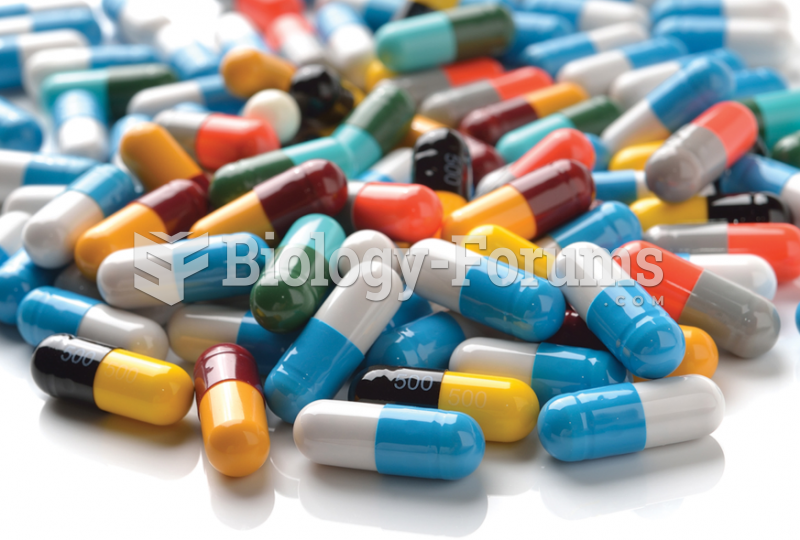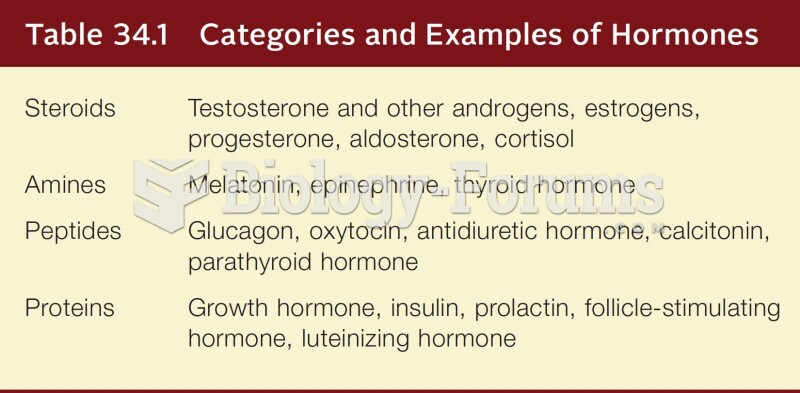|
|
|
Though the United States has largely rejected the metric system, it is used for currency, as in 100 pennies = 1 dollar. Previously, the British currency system was used, with measurements such as 12 pence to the shilling, and 20 shillings to the pound.
The tallest man ever known was Robert Wadlow, an American, who reached the height of 8 feet 11 inches. He died at age 26 years from an infection caused by the immense weight of his body (491 pounds) and the stress on his leg bones and muscles.
Liver spots have nothing whatsoever to do with the liver. They are a type of freckles commonly seen in older adults who have been out in the sun without sufficient sunscreen.
The familiar sounds of your heart are made by the heart's valves as they open and close.
Lower drug doses for elderly patients should be used first, with titrations of the dose as tolerated to prevent unwanted drug-related pharmacodynamic effects.
 How the study of genomes and proteomes can provide us with connections to different biological level
How the study of genomes and proteomes can provide us with connections to different biological level
 Large size can provide a refuge from predators. While young African elephants may be vulnerable to p
Large size can provide a refuge from predators. While young African elephants may be vulnerable to p





